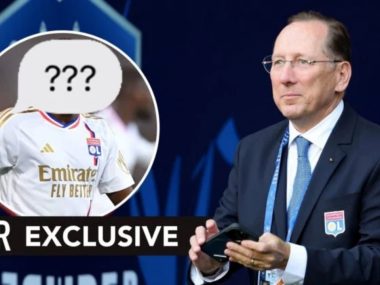Brendan Rodgers, manager of Celtic Football Club, remains steadfast in his commitment to aggressive football, even in the face of challenging European fixtures. After a mixed start to their Champions League campaign, where Celtic secured a dominant 5-1 victory over Slovan Bratislava but suffered a heavy 7-1 defeat against Borussia Dortmund, Rodgers insists he won’t compromise his team’s style. As they prepare for their next match against Atalanta, Rodgers reflects on the lessons learned and the importance of maintaining an attacking philosophy while also improving their defensive discipline.
Celtic’s Champions League Journey
Celtic entered this season’s Champions League with high hopes but faced contrasting outcomes in their first two games. A commanding win over Slovan Bratislava showed their attacking prowess, but the defeat to Borussia Dortmund exposed their defensive vulnerabilities on the European stage. Despite the heavy loss, Rodgers emphasizes the need to learn from the experience and adjust without abandoning his core principles.
Rodgers stated, “I’ve been coaching for over 25 years, and from the start, my approach has always been aggressive. That will never change. However, I respect the level of our opponents and understand the importance of defensive strength.”
This balance between attacking play and defensive solidity is what Rodgers aims to strike as Celtic face Atalanta, a team that has also experienced ups and downs in European football.
The Importance of Defensive Structure
While Rodgers remains committed to front-foot football, he acknowledges that Celtic need to tighten their defense, particularly against top European teams. He stresses the importance of staying compact and disciplined in key moments to avoid being exposed by high-quality opposition.
“There are moments when you press high, and there are moments when you’re lower on the pitch,” Rodgers explained. “The key is not to act impulsively, especially when you’re playing at this level. Inexperienced players can sometimes make rash decisions to step out of position, and at this level, you’ll get punished for that.”
Rodgers’ comments reflect the growing pains Celtic are experiencing as they try to compete against Europe’s elite. While his commitment to an attacking style remains, he understands the need for his players to make better decisions defensively. Celtic’s young squad, many of whom lack experience at the highest level, must learn quickly to avoid the costly mistakes that led to their downfall in Dortmund.
Learning from Atalanta’s Journey
Rodgers sees parallels between Celtic’s current situation and Atalanta’s rise in European football. Atalanta, under head coach Gian Piero Gasperini, has built a reputation for playing attractive, attacking football, but their journey hasn’t been without setbacks. Rodgers noted that Atalanta suffered heavy defeats in the early stages of their European campaigns, including a 5-0 home loss to Liverpool four years ago. However, the Italian side learned from those experiences, eventually securing a 3-0 victory over Liverpool at Anfield and winning the Europa League last season.
Rodgers believes that Celtic, much like Atalanta, can learn from their harsh European lessons and improve over time. “If you look at Atalanta, they had some really tough learning experiences, especially against Premier League teams, but they stuck to their philosophy and got better with time,” Rodgers said.
Celtic’s manager remains optimistic that his team can follow a similar path, using their defeats as opportunities for growth while staying true to their attacking identity. However, Rodgers is also realistic about the challenges they face, particularly given the financial disparities between Celtic and some of their European opponents.
Sticking to the Philosophy
Rodgers is clear that he will not abandon his approach to the game, even in the face of difficult results. “I’m not the type of coach who sits back. That’s not me, and it never will be,” Rodgers said firmly. “My philosophy is to attack, but that doesn’t mean I don’t respect the different levels of the game.”
For Rodgers, attacking football is not just about going forward but also about defending aggressively when out of possession. “It’s about defending well, closing spaces, and being strong without the ball,” he explained. “When we have the ball, we want to create opportunities, but we also need to defend with intensity.”
Rodgers’ philosophy is deeply ingrained, and he believes that it is the right way to approach the game, even at the highest level of European competition. However, he is also aware of the need for balance, particularly when facing teams like Atalanta, who have the ability to exploit any defensive lapses.
The Long-Term Vision
Rodgers is not just focused on short-term results but has a long-term vision for Celtic in Europe. He acknowledges that it will take time to achieve consistent success in the Champions League but is determined to lay the foundations for future progress.
“This is a long-term project in Europe,” Rodgers said. “One of the reasons I came back to Celtic was to show that we can make progress, not just in one or two games, but over time. We don’t want to experience the feelings we had after the Dortmund defeat again, but we have to learn from it and keep moving forward.”
Celtic’s European ambitions are not just about this season but about building a team that can consistently compete at the highest level. Rodgers is focused on creating a squad with the spirit and togetherness needed to succeed in Europe, even if that journey involves some painful setbacks along the way.
Ademola Lookman’s Journey to Atalanta
Rodgers also reflected on his connection with Atalanta’s star winger, Ademola Lookman, who played a key role in the Italian side’s Europa League triumph. Lookman had been a target for Celtic during Rodgers’ first spell in charge, but the deal fell through when Everton outbid the Scottish club in 2017. Lookman eventually moved to Atalanta, where he has become a key player.
Rodgers recalled his efforts to bring Lookman to Celtic Park, explaining, “We tracked him during my first time at Celtic. I met him in London, and we were close to bringing him in, but Charlton wanted more money, and he ended up going to Everton.”
Rodgers later worked with Lookman during a loan spell at Leicester City and was impressed by the winger’s talent. Although Leicester couldn’t afford a permanent transfer, Rodgers tipped off his former colleague, Lee Congerton, who was working at Atalanta, leading to Lookman’s move to Italy.
Now, Lookman will face Celtic in the Champions League, and Rodgers is full of admiration for the player he once tried to sign. “He’s now a club legend at Atalanta, and I’m really proud of how he’s developed,” Rodgers said.
Conclusion
Brendan Rodgers remains resolute in his approach to football, emphasizing an aggressive, attacking style while acknowledging the need for defensive discipline in European competition. As Celtic prepares for their next Champions League match against Atalanta, Rodgers is focused on learning from past mistakes and improving his team’s balance on the pitch. Despite the challenges ahead, Rodgers is confident that Celtic can continue to grow and compete at the highest level in Europe.


